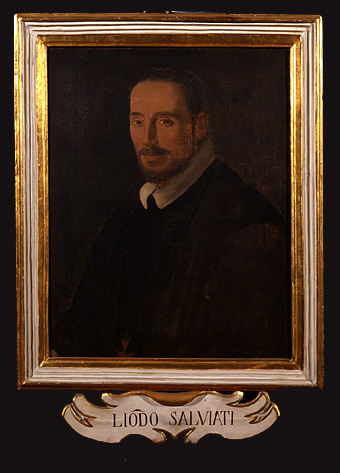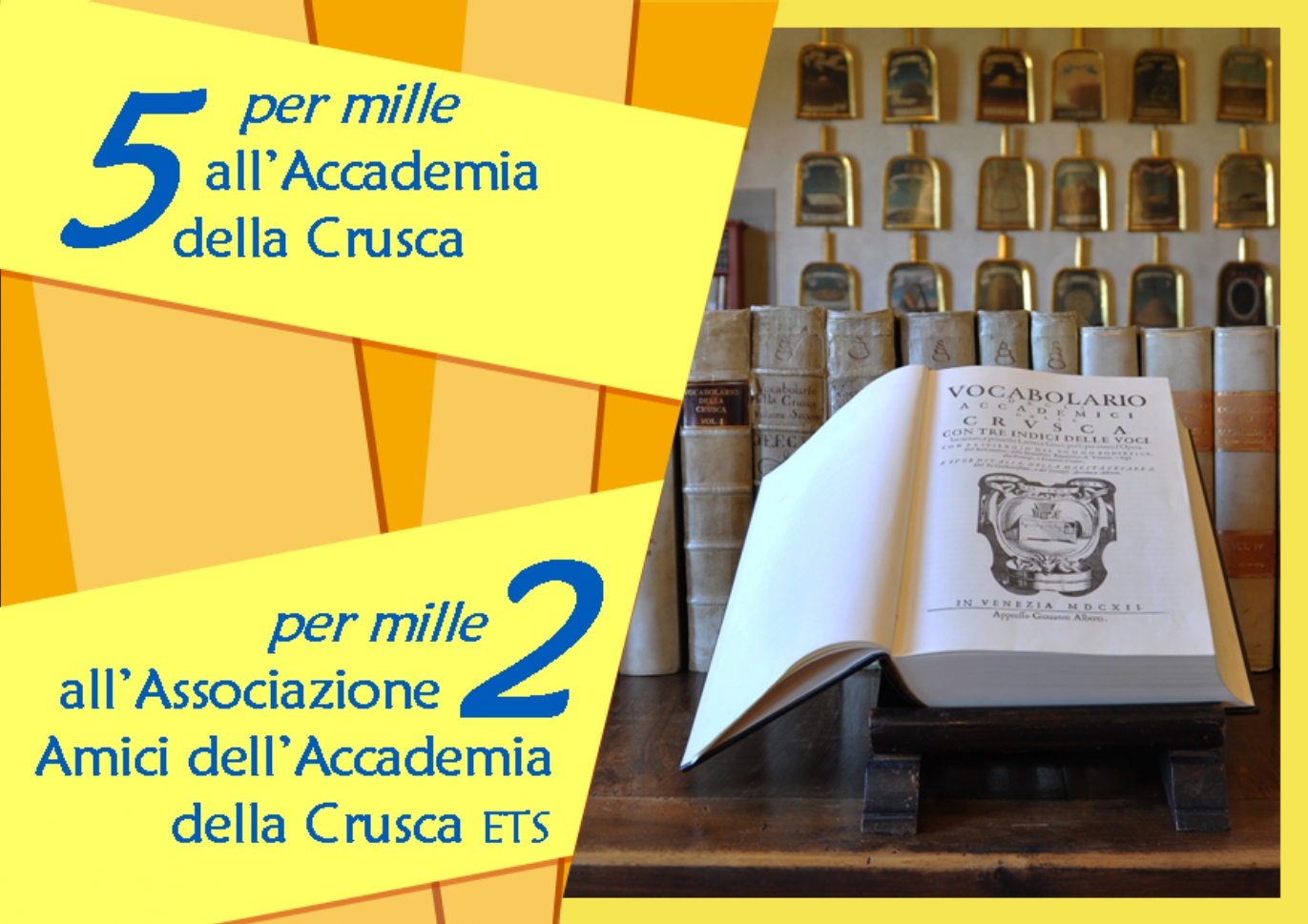Origins and foundation
Salviati himself gave new meaning to the name Crusca ('bran'), establishing the use of the symbology related to flour and to the process of bread-making, and giving the Accademia the purpose of "separating the flour (the good language) from the bran (the bad language)", following the language model first advocated by Bembo and then by Salviati himself, a model that was based on the supremacy of the Florentine vulgar tongue, modelled on the authors of the 14th Century.

They also decided that all the objects and furniture of the Accademia should have names relating to grain, bran, and bread, including the personal coats of arms of the Academicians, the "pale", wooden shovels which were painted with a symbolic image, together with the nickname of each Academician and his chosen motto.
Attività
Protocollo di intesa Accademia della Crusca / Ufficio Scolastico Regionale della Toscana / Società Dante Alighieri
L'Accademia della Crusca e la questione del genere nella lingua
Le iniziative dell'Accademia per il 2021, anno dantesco
Agenda eventi
Evento di Crusca
Collaborazione di Crusca
Evento esterno
Avvisi
Accesso estivo all'Archivio
Avviso dall'archivioL'Archivio dell'Accademia della Crusca resterà chiuso per tutto il mese di agosto 2024.
Chiusura estiva dell'Accademia
Avviso dalla bibliotecaGli uffici e la Biblioteca dell'Accademia della Crusca resteranno chiusi dal 12 al 23 agosto 2024.


